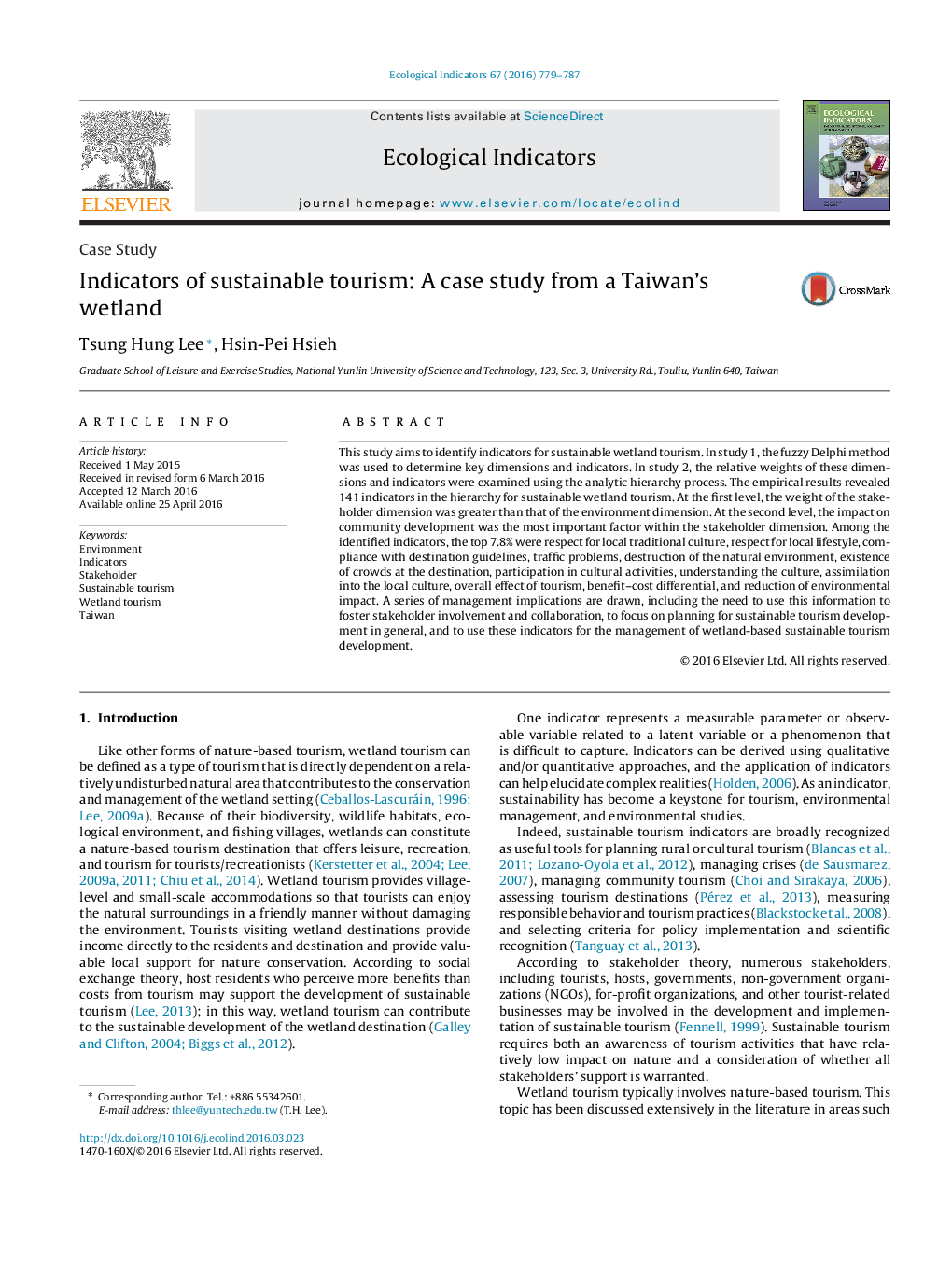| Article ID | Journal | Published Year | Pages | File Type |
|---|---|---|---|---|
| 4372923 | Ecological Indicators | 2016 | 9 Pages |
•Stakeholder and environmental impact theories are driven to develop indicators.•We identify 141 indicators for sustainable wetland tourism.•We determine the weight of each indicator for sustainable wetland tourism.•We provide management implications for sustainable wetland tourism.
This study aims to identify indicators for sustainable wetland tourism. In study 1, the fuzzy Delphi method was used to determine key dimensions and indicators. In study 2, the relative weights of these dimensions and indicators were examined using the analytic hierarchy process. The empirical results revealed 141 indicators in the hierarchy for sustainable wetland tourism. At the first level, the weight of the stakeholder dimension was greater than that of the environment dimension. At the second level, the impact on community development was the most important factor within the stakeholder dimension. Among the identified indicators, the top 7.8% were respect for local traditional culture, respect for local lifestyle, compliance with destination guidelines, traffic problems, destruction of the natural environment, existence of crowds at the destination, participation in cultural activities, understanding the culture, assimilation into the local culture, overall effect of tourism, benefit–cost differential, and reduction of environmental impact. A series of management implications are drawn, including the need to use this information to foster stakeholder involvement and collaboration, to focus on planning for sustainable tourism development in general, and to use these indicators for the management of wetland-based sustainable tourism development.
